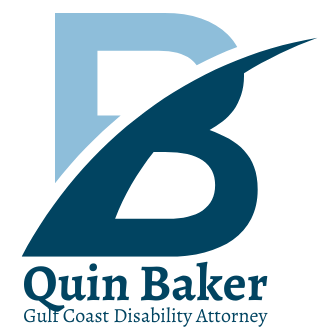Appealing Your Social Security Disability Denial
If you have a serious medical condition that doesn’t allow you to work and pay your bills, you may be eligible for Social Security Disability (SSD) benefits. Unfortunately, the Social Security Administration (SSA) is known for denying about 63% of initial applications. That means you have a better chance of being denied than approved with your initial claim.
It can be incredibly discouraging to find that your claim has been denied when you are struggling with a medical condition and trying to make ends meet. But it’s not the time to give up. You can still win and get approved for benefits through the appeals process.
A study by the U.S. Government Accountability Office (GAO) revealed that people who hired an attorney to help with their disability claims were three times more likely to be successful than those who didn’t.
At Baker & Baker, our experienced Social Security Disability attorneys focus on helping clients with SSD applications and appeals. Contact our office today for a free consultation to learn more about our services and your options.
Common Reasons for Social Security Disability Denials
Because so many SSD claims are denied, there must be some common reasons. It turns out there are several, but some may be beyond your control. That said, understanding why the SSA might deny your claim can help you avoid some common pitfalls with your application.
If your SSD claim was denied, there is a good chance it was for one of these reasons:
- You earn too much money.
SSD benefits are available to people that have paid into the Social Security system over multiple years. One of the most common reasons that benefits are denied is that the applicant hasn’t accumulated enough “credits” for eligibility, or they are currently earning too much money.
- Your disability is not severe enough or won’t last long enough.
To qualify for SSD, you must have a disability that is severe enough to last at least 12 months or is likely to result in your death.
- The SSA cannot find you.
If the SSA tries to communicate with you and don’t respond, you can expect that your claim will be denied. The agency might try to contact you for more information or even to schedule an examination.
- You won’t cooperate with the SSA.
If the SSA asks for additional medical or employment records or wants you to attend a medical exam, you must cooperate with their requests. If you fail to do this, your claim is likely to be denied.
- You are non-compliant with treatment.
The SSA will also deny your claim if you are not complying with medical treatment, which can prolong or worsen your medical condition and disability. However, you are permitted to refuse medical treatment that you can’t afford, that goes against your religious beliefs, or that conflicts with another physician’s recommendations.
- Your disability is primarily based on alcoholism or drug addiction.
If alcoholism or drug addiction is the continuing primary disabling condition, the SSA will deny your claim. In short, the agency will take a close look at whether you’d still be disabled if you stopped using alcohol or drugs.
- You have already been denied benefits.
If you have already been denied SSD benefits, it’s better to appeal the denial of the original claim, rather than file a new claim based on the same old information and same old medical records. In either instance, filing an appeal or filing a new claim, you should speak with an attorney to determine what is in your best interest.
Appealing Your Social Security Disability Denial
If you’re one of the several million people that file for SSD benefits annually, there’s a good chance your claim will be denied. The good news is that an initial claim rejection does not mean that the agency has reached a final decision. You have rights and options.
If you are denied Social Security Disability benefits, here are some steps you can take to appeal the decision:
- File for Reconsideration – You have 60 days from the date you receive the denial notice to request reconsideration. This stage also includes a right to representation, so you can have an attorney assist with your appeal.
- Schedule a Hearing with an ALJ – If your case goes through the reconsideration process and is denied again, you still have options. You can ask for a hearing that is conducted by a local Administrative Law Judge (ALJ). The judge will review your case and can ask you questions. You also have the right to bring forward any medical experts or witnesses.
- Submit New Evidence – One of the things that can be most beneficial to your case during the appeals process is the introduction of new evidence. If you can submit new medical evidence that proves you have a covered condition or that your condition is severe enough to prevent you from working for an extended period, this could reverse the initial decision on your case.
- Take the Matter to Court – There are four levels of appeal for SSD claims. If you are not successful in your first three appeals attempts, you can file a civil suit in the federal district court within 60 days. A civil action is filed by your attorney in the Northern District of Florida district court of the United States.
What “Appeal Under Review” Means
You’ve decided to appeal, and you have submitted the necessary forms and documentation of your disability. The next communication you get is a letter stating that your appeal is under review—but what does that mean? Basically, “appeal under review” just means that your documentation has been received and put in the pipeline for processing.
How an Experienced Social Security Disability Attorney Can Help
Handling a Social Security application and appeal on your own can be intimidating. For most, this is an unfamiliar process, and a single mistake can result in the denial of your claim and the forfeit of valuable benefits.
At Baker & Baker, our knowledgeable Social Security Disability attorneys can guide your SSD application from day one so that you can focus on what matters most – your physical and emotional recovery. If your claim is denied, it is vital that you have an attorney on your side that will advocate for your interests throughout the appeals process.
Our firm does not charge upfront for its services and will only charge a fee once you receive a reward for benefits. Contact our office today at (850) 433-0888 to schedule a free consultation.

